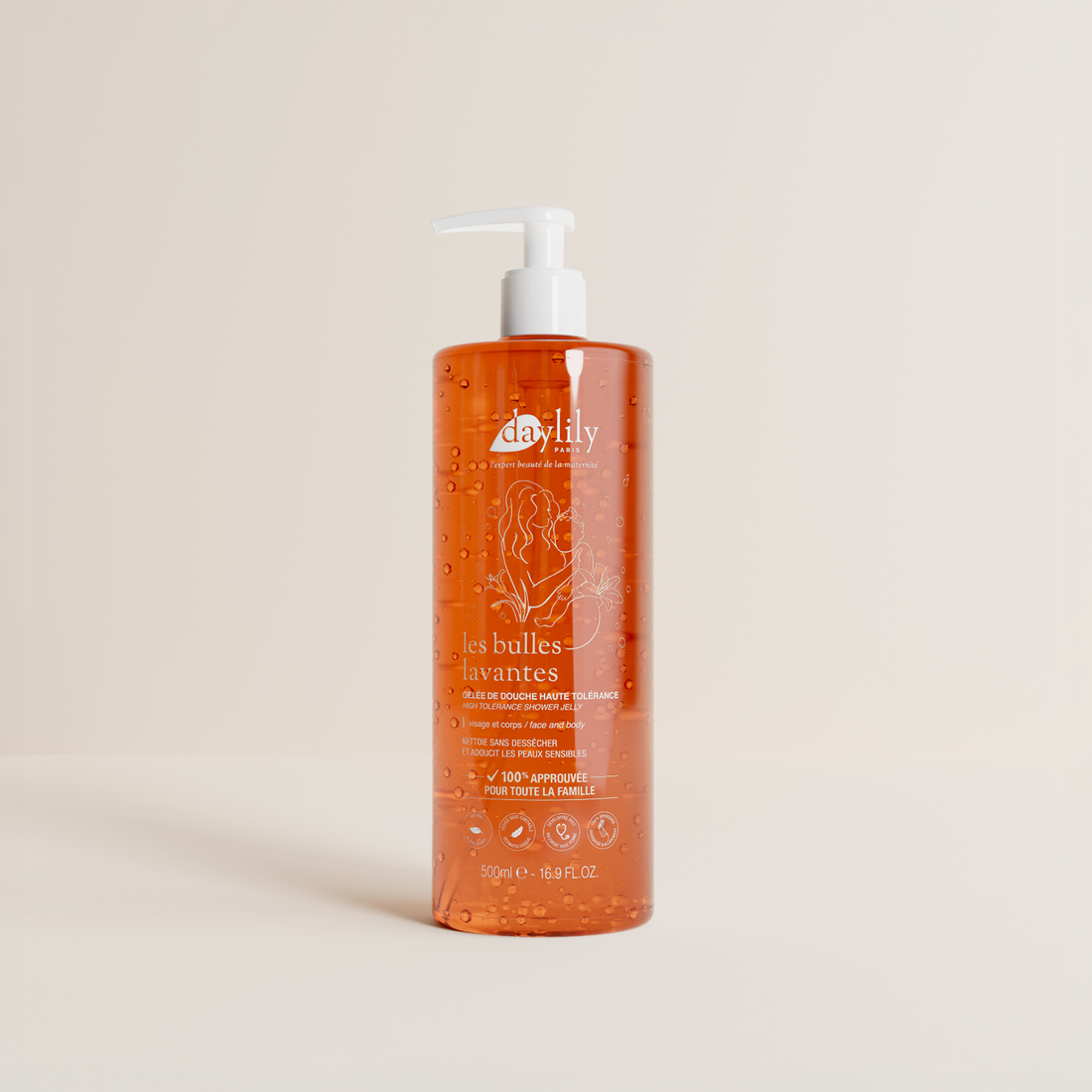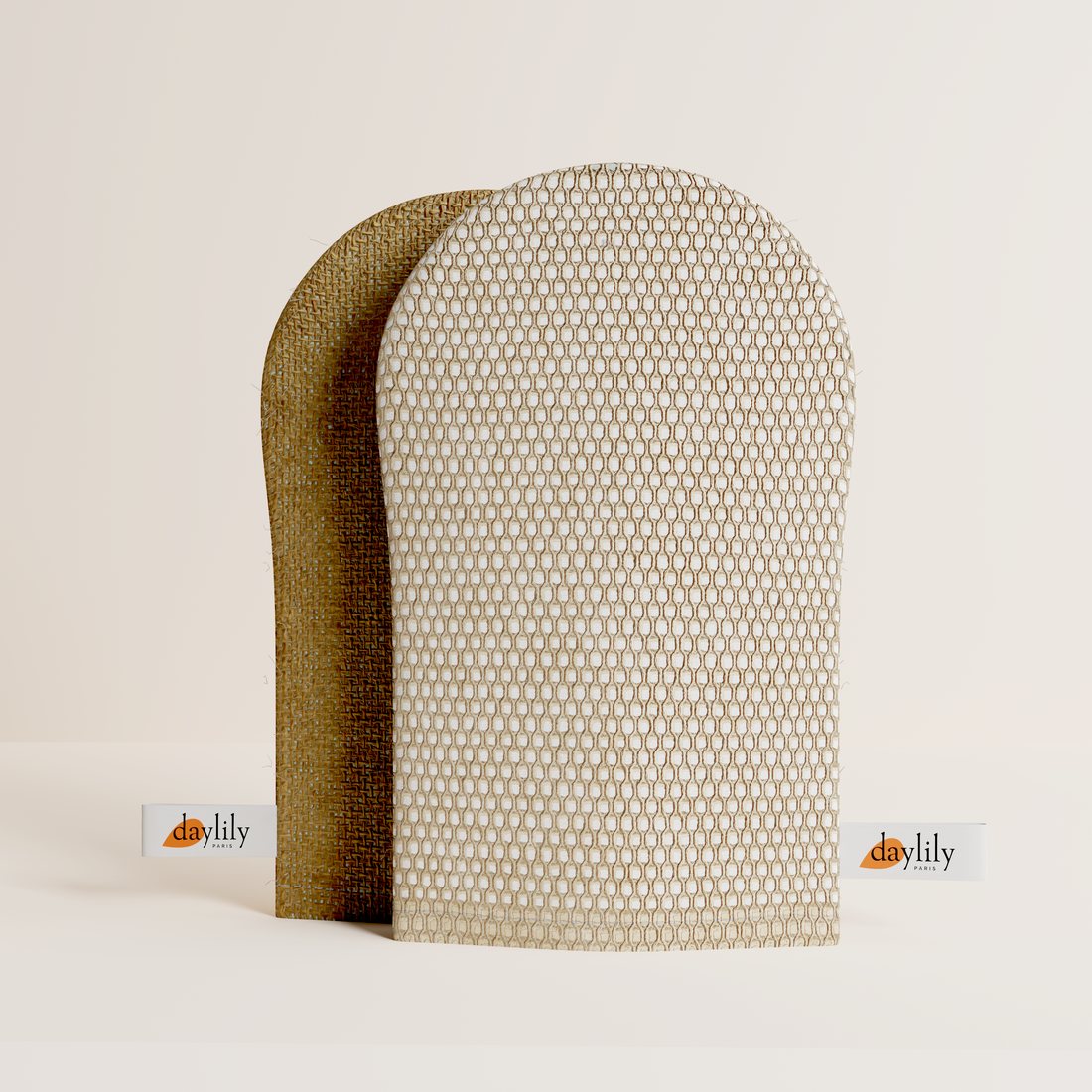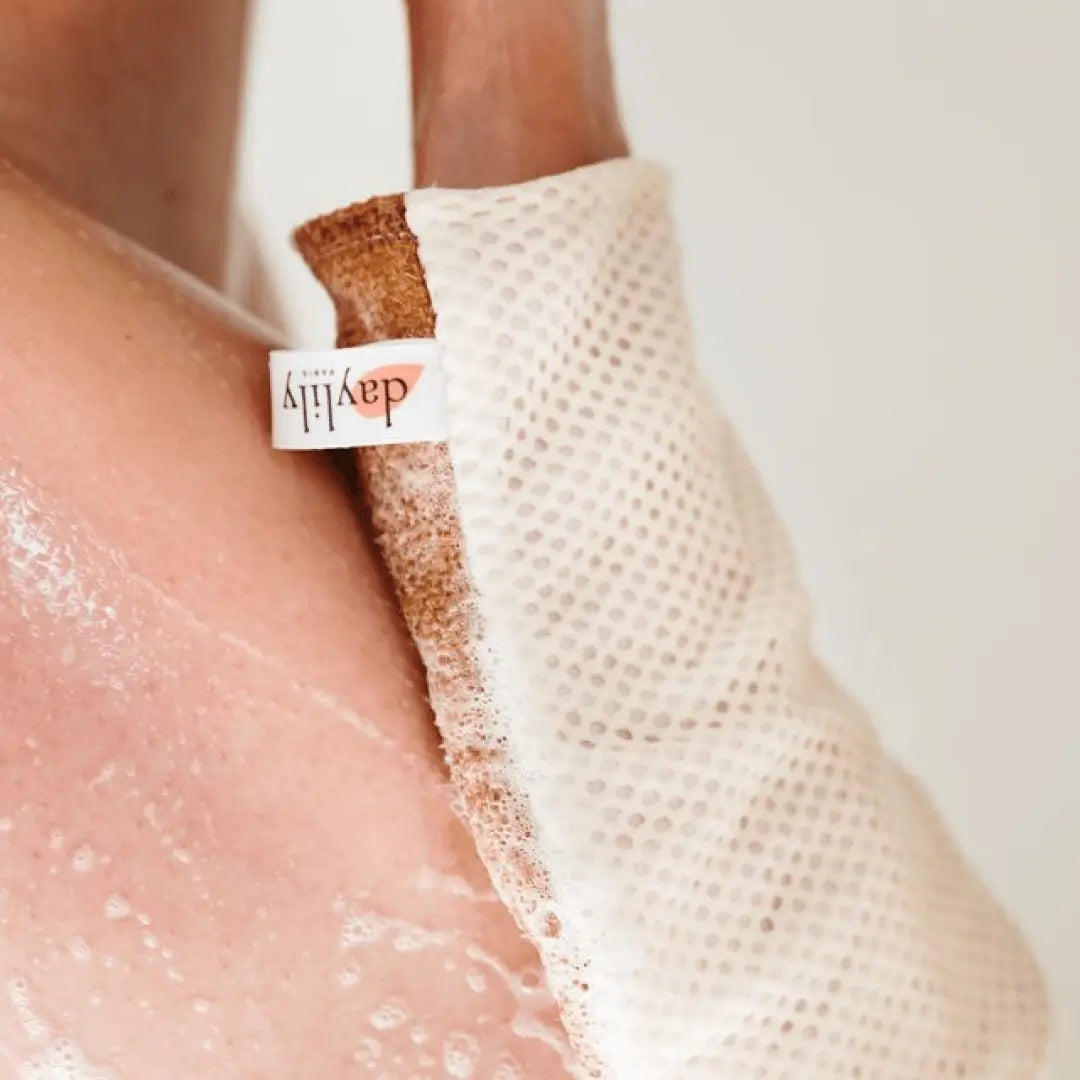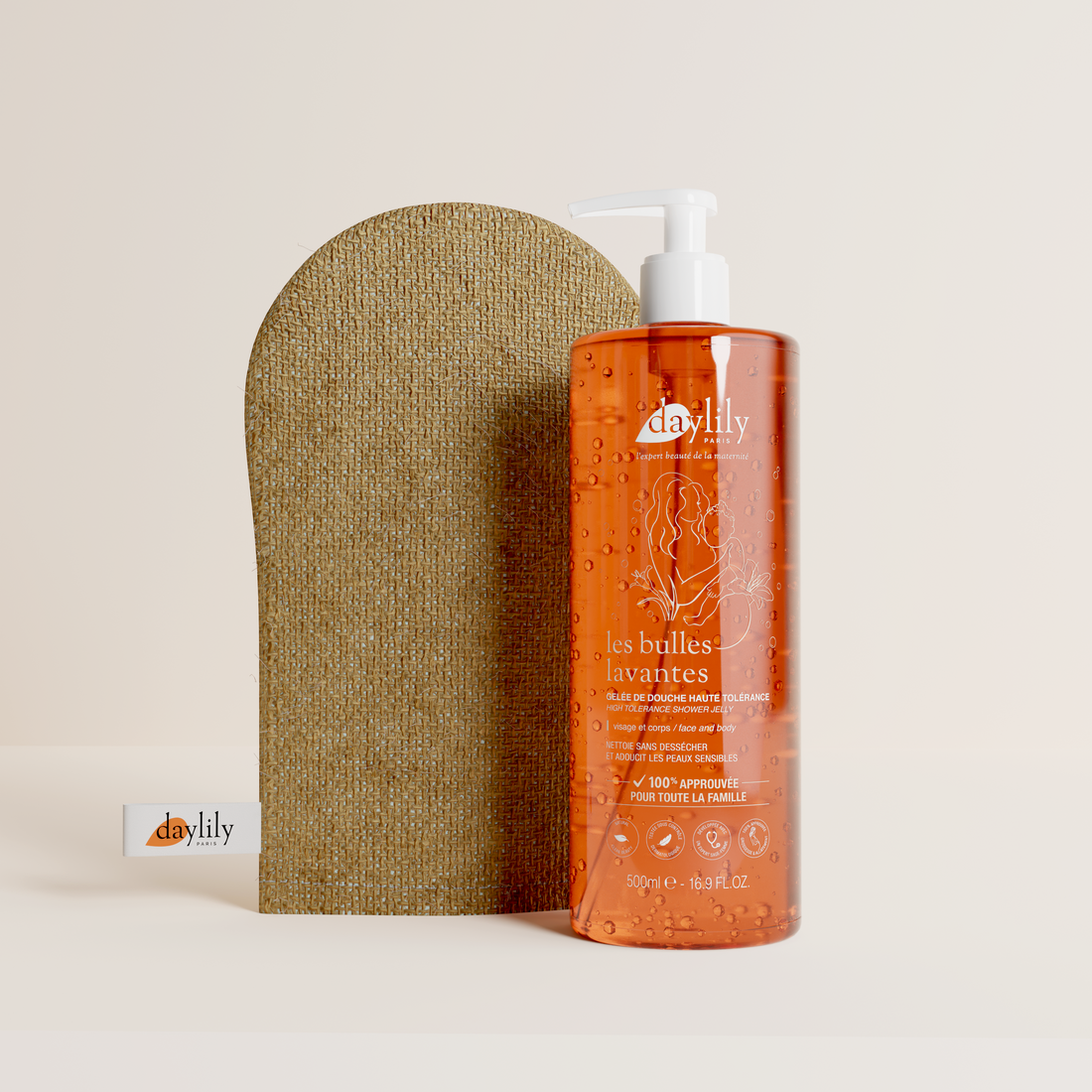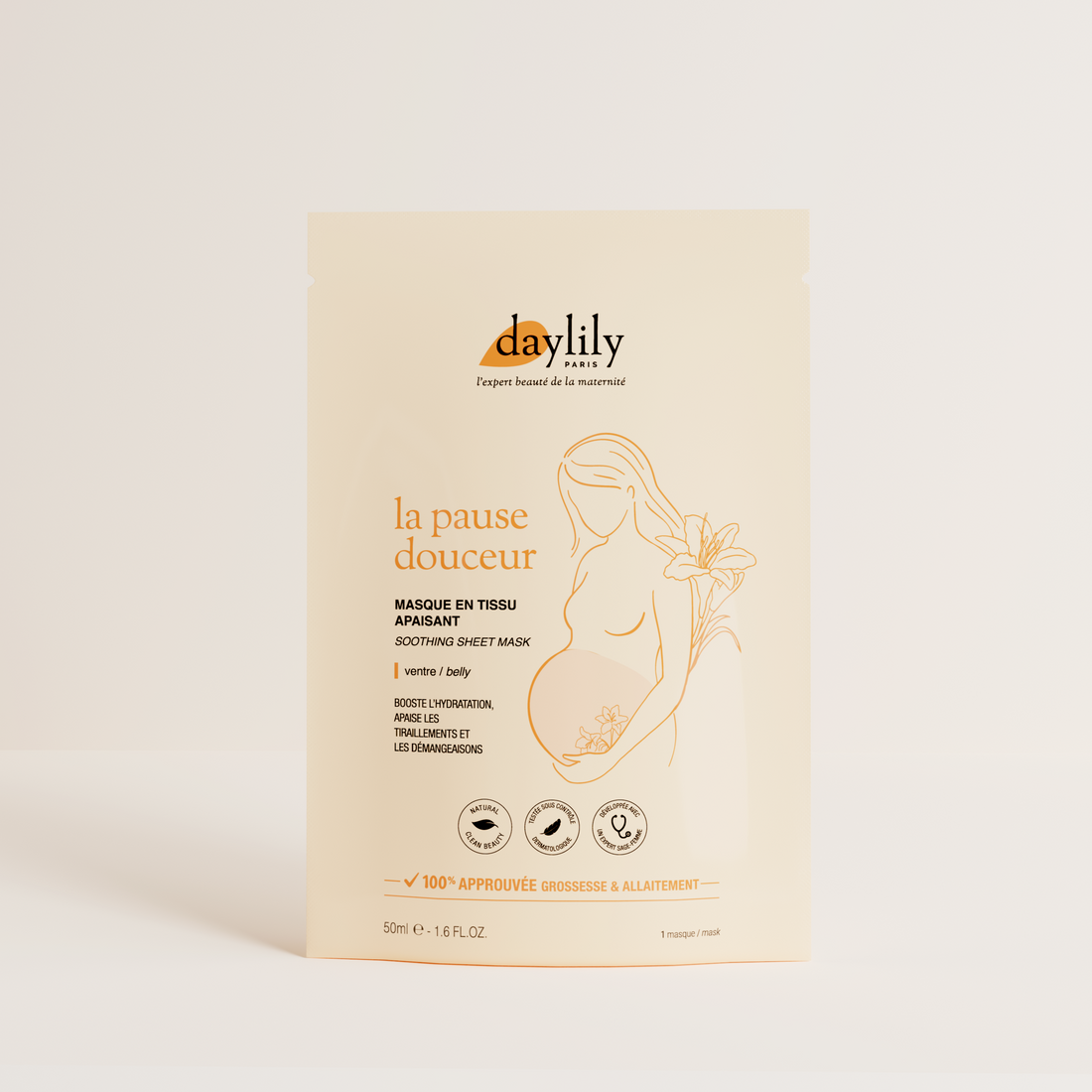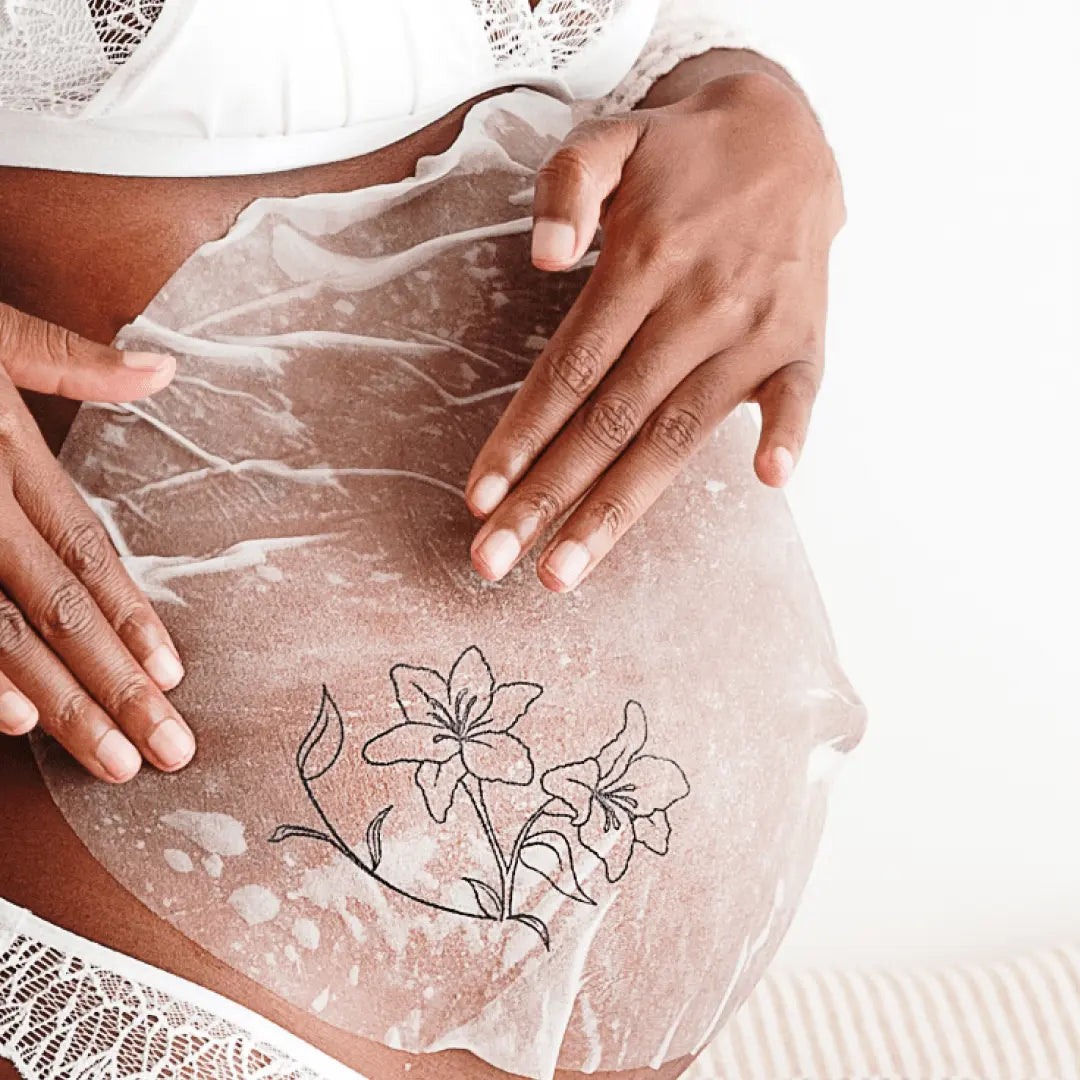Daylily Paris is a brand of clean, sensory and effective skincare products, made in France and 100% compatible with pregnancy and breastfeeding. We are also committed to sharing quality information for informed and uninhibited motherhood.🧡
- Food and pregnancy: what are the risks?
- Some precautions for cooking during pregnancy
- What Christmas meal for a pregnant woman?
Food and pregnancy: what are the risks?
Your gynecologist or midwife has certainly informed you: certain infections should be absolutely avoided during pregnancy.
Among them, toxoplasmosis, salmonellosis and listeriosis, diseases which can be contracted by consuming poorly washed, raw or insufficiently cooked products.
- Toxoplasmosis is a parasitic infection, which, although normally benign, is particularly dangerous for the fetus during pregnancy. It can cause malformations, growth retardation, premature delivery and in the worst cases, death in utero. Transmitted by cats, this disease can also be contracted by consuming poorly washed vegetables, poorly cooked meats or eggs.
- Listeriosis and salmonellosis can be caught in the same way, but also by consuming cold meats and certain cheeses. Symptoms may go unnoticed, or be similar to those of sepsis or gastroenteritis. While they generally have little impact on the health of an adult, the same is not true for a pregnant woman and her baby. These two infections can trigger contractions, premature delivery and infect the newborn with varied consequences on their health.
We reassure you, by paying attention to what you eat and how you cook it, you will get through the nine months of pregnancy with complete peace of mind.

Some precautions for cooking during pregnancy
Turkey, foie gras, shrimp, cheese platter, log… All these delicious dishes are part of the Christmas feast! But can you eat them while pregnant? Are there any precautions to take when preparing, cooking or storing holiday meals?
Generally speaking, all the food you eat should be thoroughly cleaned.
At Christmas, the same precautions are required as in normal times: vegetables eaten raw (for an aperitif, as raw vegetables, as an accompaniment salad, etc.) must be carefully washed, or even disinfected with a little white vinegar to eliminate the risks of contamination with toxoplasmosis – unless of course if you are part of the lucky 35% who are immune. Remember to let your hosts know if you are invited to a Christmas meal :-)
To eliminate any risk of illness, foods for a mother-to-be must be well cooked... which is not the case with many Christmas dishes. And yes, eggs, meat, fish should not be consumed in their raw or semi-cooked version in order to avoid listeriosis or salmonellosis.
You will therefore have to skip raw or semi-cooked foie gras, beef tartare, raw oysters or even homemade mayonnaise. And does smoked salmon work? Well no, because the smoking process is insufficient to eliminate pathogens. This applies to all smoked fish: herring, sardines, trout, mackerel, etc.
As for traditional oysters and other raw seafood, they are also persona non grata for a mother-to-be. The idea is to limit any possibility of food poisoning with seafood, which is subject to bacterial contamination.
On the cheese side, a certain number of restrictions are also necessary! For nine months, you will have to ignore those made with raw milk, soft cheese with a flowery rind or blue cheese, such as Brie, Camembert, Roquefort, Gorgonzola or even Mont d'Or. Don't be afraid to treat yourself to hard cheeses!
The prohibitions not only concern what you eat, but also what you drink. Remember, alcohol in all its forms (wine, sparkling wine, digestive, etc.) is strictly prohibited during pregnancy.
What Christmas meal for a pregnant woman?
To eliminate the frustration of not being able to eat what you want at Christmas, you just need to find alternatives, and believe us, it's a lot easier than it seems!
On the drinks side, more and more brands are thinking of you and are going alcohol-free: champagne or alcohol-free beer, virgin cocktails... I promise, you will be able to toast with something other than a glass of water in your hand ;-)
Regarding the main course, you can easily taste the traditional dishes: capon, turkey, mushrooms, chestnuts... On the other hand, if your turkey is stuffed, it is important that the stuffing is well cooked , you can also turn to another alternative: vegetable-based stuffing, it’s up to you to suggest this culinary idea to your hosts!
You can eat shrimp cooked with industrial mayonnaise and cooked foie gras.
Do you want to eat oysters for Christmas? This is not difficult, just enjoy them hot. It's not quite the same dish, we grant you, but this alternative is tasty and safe for a pregnant woman.
You can satisfy your dairy cravings by tasting all the pasteurized milk and hard cheeses such as Emmental, Parmesan, Cheddar, as well as all the fromage frais, fresh squares, etc.

As for dessert, just make sure that the cake or log does not contain raw eggs: this is the case, for example, with chocolate mousse, tiramisu, crème brûlées or dessert creams. Raw eggs can also be used in the composition of pastry logs. If you love this traditional dessert, you can enjoy frozen logs, they are a good alternative to pastry logs, without raw eggs, they will delight your taste buds!
This leaves you with quite a few possibilities to treat yourself and satisfy your sweet tooth: gingerbread, fruit salad, tarts, baked apples, sorbets, Christmas cookies...
You can also opt for a frozen dessert, a very good option if the cold chain has been respected. It is sometimes simpler (and safer!) to cook yourself or turn to industrial products rather than buying a product from a craftsman without knowing its real composition or leaving those around you in the kitchen; -)
All the little Christmas treats are allowed: chocolates, truffles, orangettes... You can let yourself be tempted without restrictions (except perhaps that of your scale and your gynecologist ;-)
One last little tip before the holidays: during pregnancy, under the action of hormones, digestion is slowed down. You are more easily prone to bloating, heartburn and nausea, especially after a rich meal. Treat yourself during New Year's Eve, but don't overdo it to feel in great shape!
Even when you're pregnant, there's no question of giving up on a good Christmas meal. You will certainly have to change your habits, for a good cause. Next year, you will be able to devour all the Christmas dishes without restriction, with the best gift at your side: a new little guest at your table!


